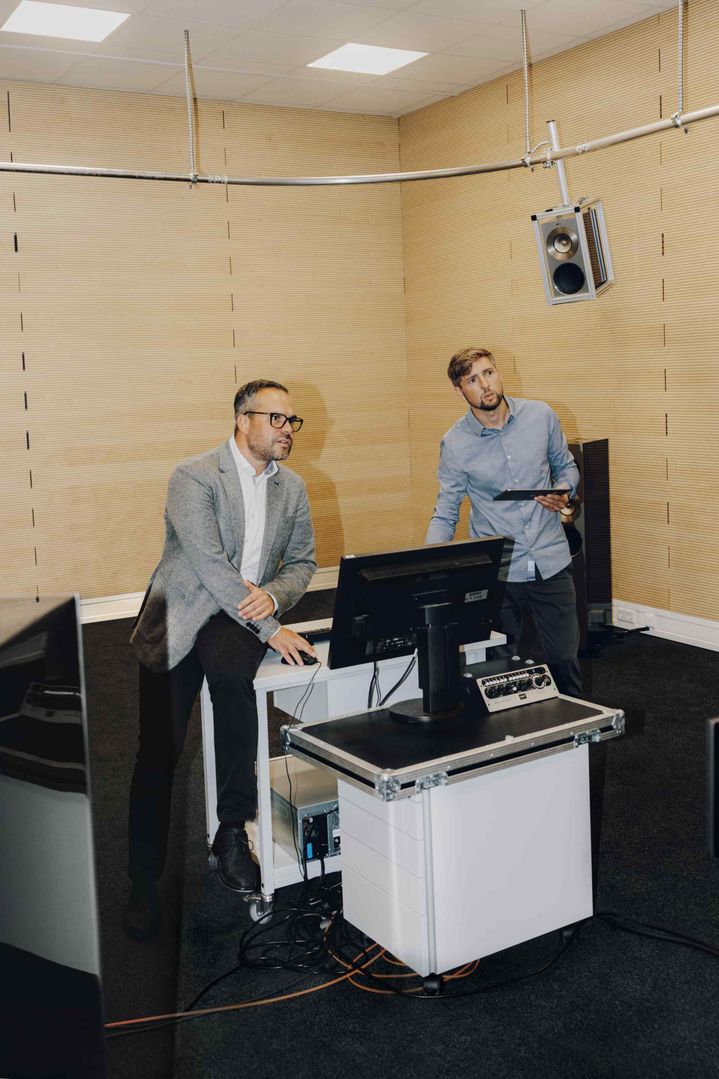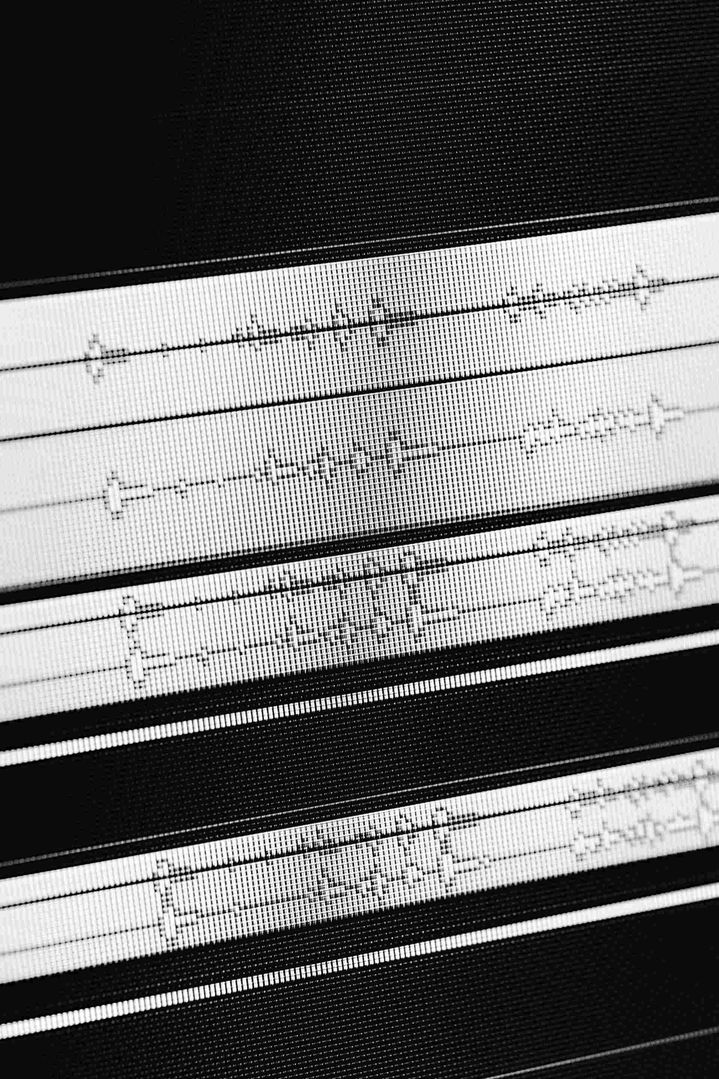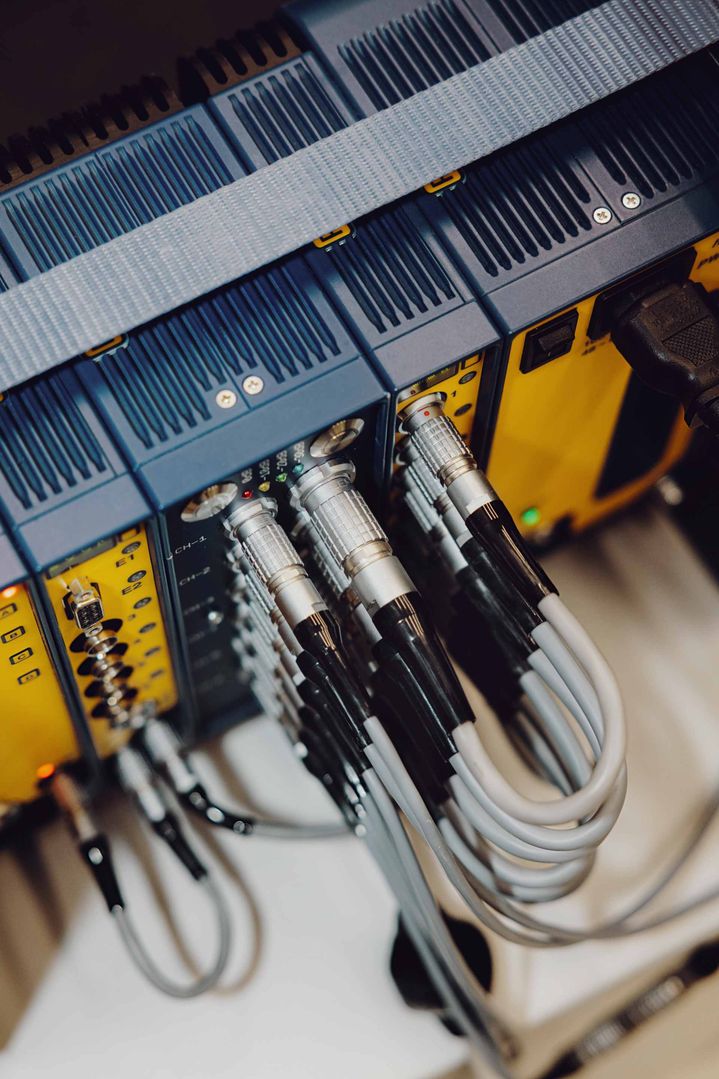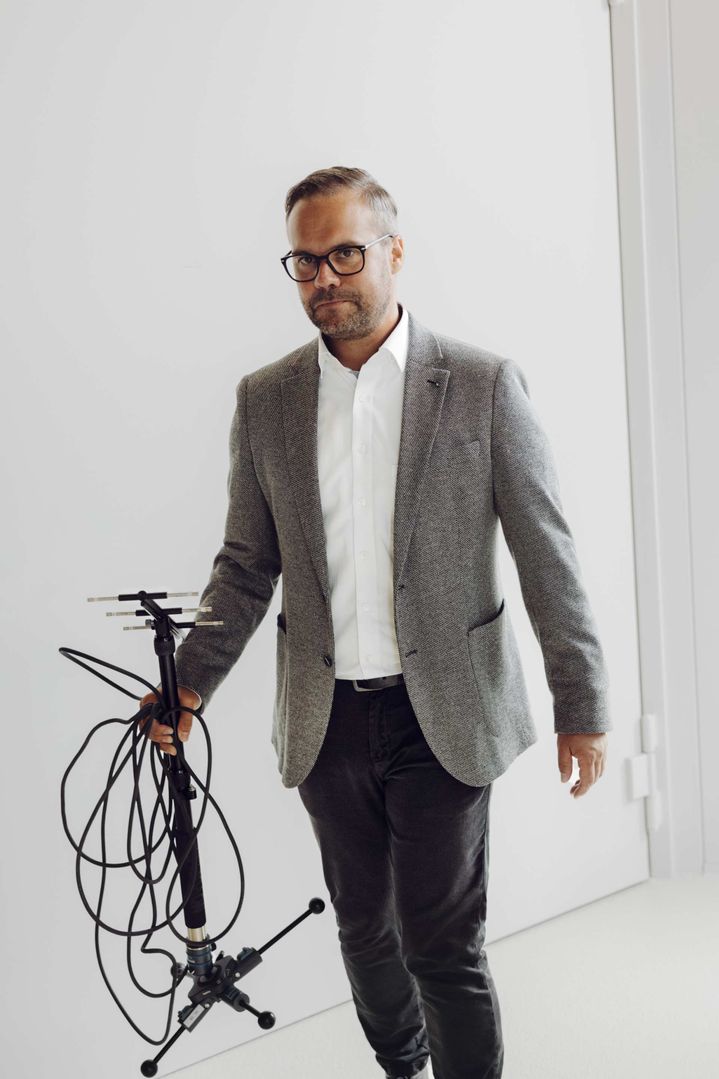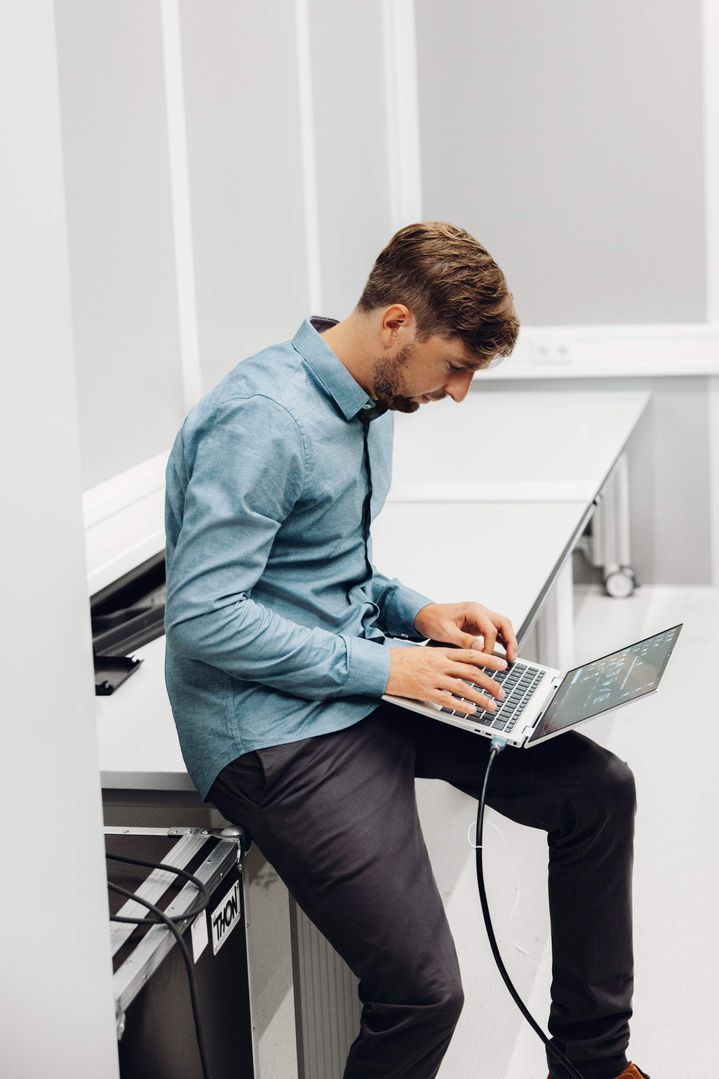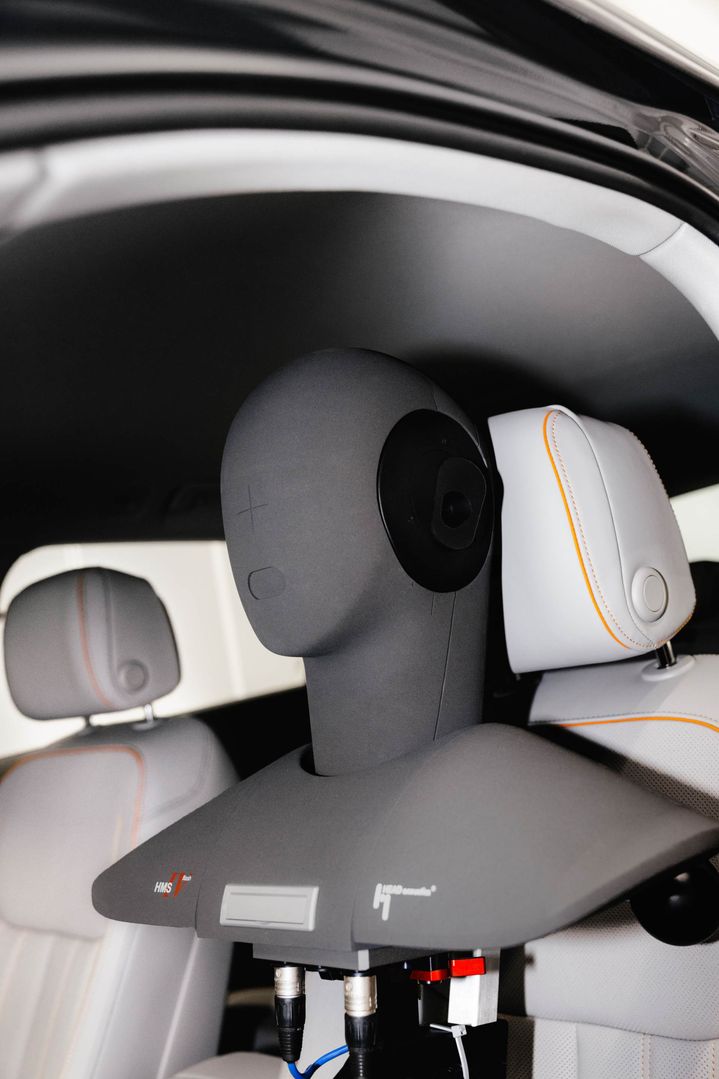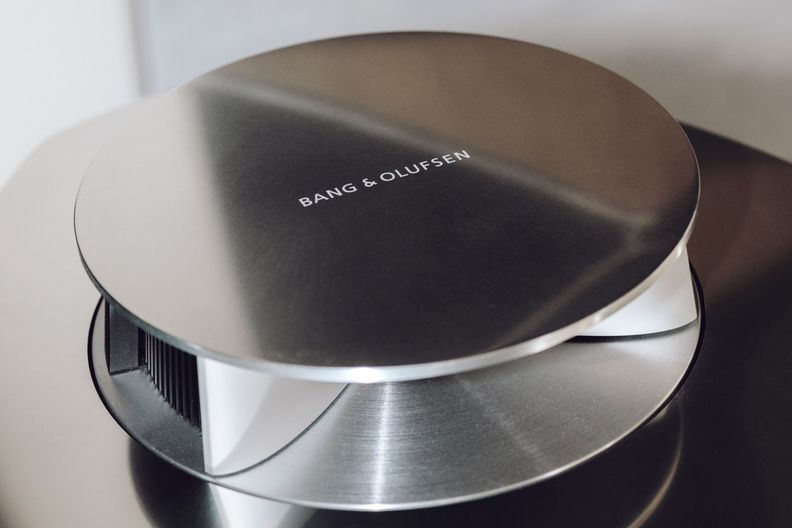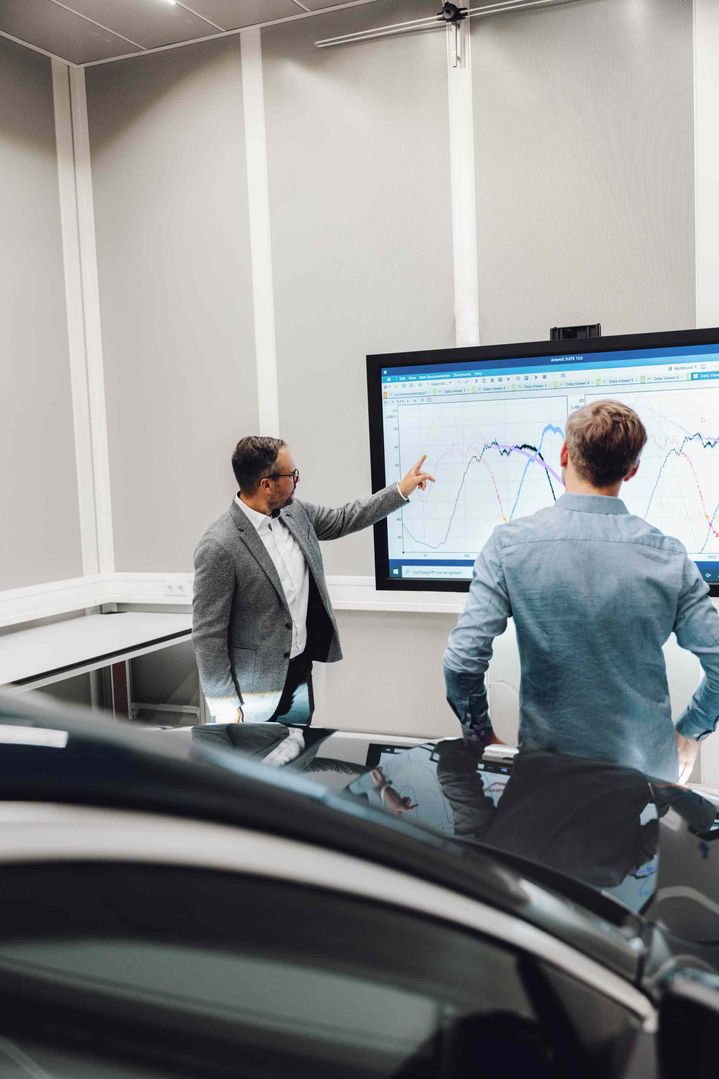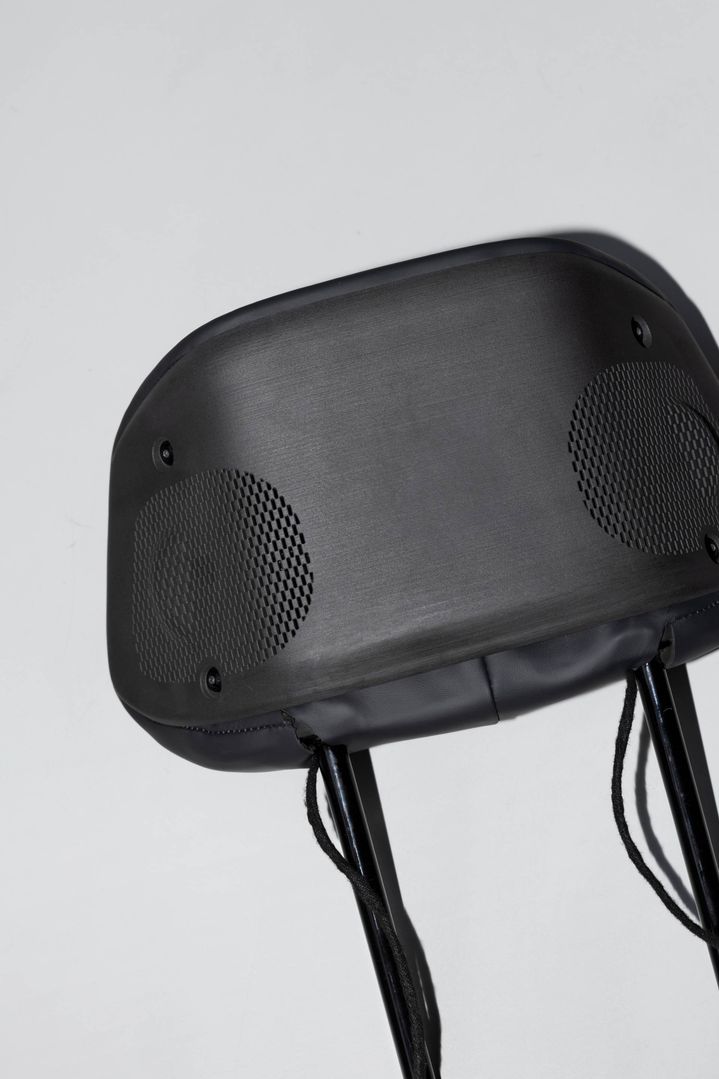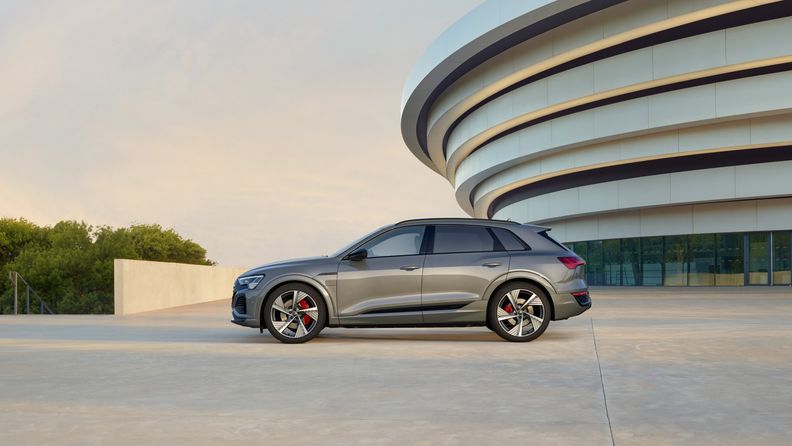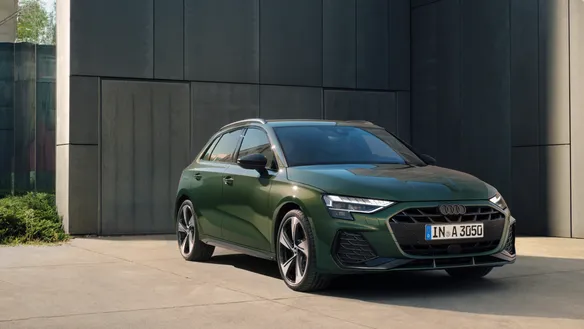An immersive sound experience
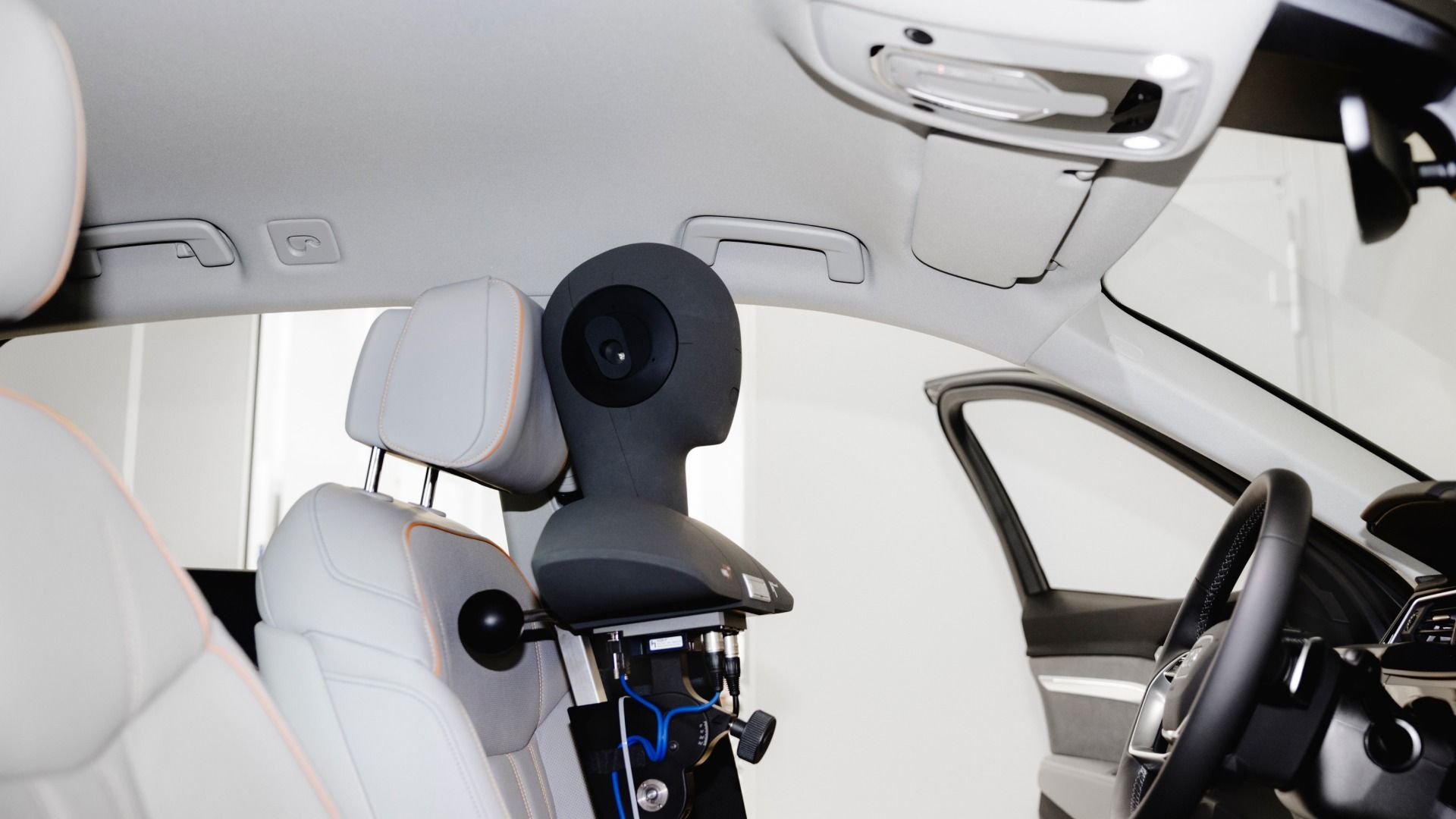
“Nothing here is random.” This description of the Audi reference listening room makes Klaus Brummet smile. The acoustic room, meticulously designed according to ideal acoustic parameters, helps Brummet and his colleagues to “calibrate their ears”, explains the Head of Sound Development and Infotainment Design at Audi.
They calibrate their ears, align them to the perfect sound of a musical composition under optimal conditions in the reference listening room, and then inside a vehicle, to check whether he and his team have succeeded in transferring this perfection to the sound system of an Audi.
But how does Brummet define perfect sound? “As an effortless experience in the best sense. No highs that are too sharp, no bass that is too boomy. But still precise, of course, the timing must be right, you must be able to hear the exact sounds. With clarity, brilliance and a certain transparency. A musical composition with many instruments and vocals should not be a meaningless mixture of sounds, but your ears must be able to differentiate and assign each and every single one of them. Can I differentiate between different voices, can I hear individual people sing?”
Acoustics engineer Alexander Kluge, a sound systems developer and specialist for loudspeakers and immersive sound experiences, joins in: “It’s about keeping the balance. Listening to music in the car should first and foremost be fun, without being too gimmicky. But with our high-quality sound systems, music can of course also be analytical; you can hear all the details.”
A trained, analytical ear would hear if a delay didn’t fit, if the bass didn’t sound clean, if the sound wasn’t precise, the developers agree. Normal listeners who simply enjoy the sound may not be able to perceive this in such detail so much as to say that this is disturbing, but they would still be able to sense whether it is a round, rich sound that makes them feel comfortable, or whether perhaps something is off.
“With our high-quality sound systems, you can hear all the details.”
Achieving a sound as perfect as possible inside a car is a challenge for the Audi sound specialists: “Because the interior of a vehicle is anything but acoustically optimal,” Kluge explains. “Too many smooth surfaces, too many reflections.”
But there are some benefits, too, Klaus Brummet points out: “We know exactly where the listeners are sitting, we can define exactly where the loudspeakers are located for best listening pleasure, and we can tune the sound precisely to that. That’s why our claim is: In your Audi, the listening pleasure is better than in your living room at home. We can precisely harmonise the acoustics inside the vehicle and ensure that the full richness of detail of a musical composition becomes audible and can be properly enjoyed.”
The sound developers are trying to achieve this, for example, in the optional Audi Bang & Olufsen sound system with 18 loudspeakers – distributed in front of, next to, behind and above the occupants. The team is already developing new technologies to make the immersion of sound even more fascinating in the future: The sound of rain in a musical composition should thus be heard dripping from above to achieve the most natural sound experience possible, throughout the vehicle.
When first defining a vehicle concept, Brummet and his colleagues have to pay attention to ideal acoustic conditions: Where are the loudspeakers located, how are they placed in relation to the windshield, how are they angled, does a head-up display perhaps take space away from a tweeter, is there an optimal positioning for the subwoofer for an ideal sound inside the vehicle so it will trigger the desired emotions?
This concept lays the foundation for the sound experience inside the vehicle, but the experience ultimately thrives from the fine-tuning of the interior, perfected in the Audi sound lab. After all, the sound from the 18 loudspeakers must be as good in the passenger seat or the back seat as it is in the driver’s seat. To achieve this, it is precisely defined which individual loudspeaker sends a certain signal with a certain delay and at a certain level, so that an overall sound image reaches the ear that naturally reproduces all frequencies authentically with rich and high-quality acoustics.
Two key Audi partners are involved in this tuning process: the high-end sound specialist Bang & Olufsen and the Fraunhofer Institute for Integrated Circuits IIS in Erlangen. Both partners work for several weeks per vehicle model to fine-tune the sound in the interior.
After linearising the loudspeakers via the speaker management system, the Bang & Olufsen specialists adjust each individual loudspeaker in an entertainment tuning process in a way that, without a surround algorithm, a 2D sound will precisely reproduce the sound impression from the reference listening room inside the vehicle.
The sound engineers from the Fraunhofer Institute then make individual adjustments to the spatial effects for each sound system in each vehicle. Using a patented algorithm, they filter out spatial information from the music tracks, output it via the treble and surround loudspeakers, and can thus increase the intensity of the track’s spatial impression. They call it upmixing to 3D sound.
“In your Audi, the listening pleasure is better than in your living room at home.”
3D sound
3D sound creates a lively, intense, spatial impression. As a listener, you feel immersed in the action. The 360-degree sound comes from a large number of loudspeakers distributed throughout the vehicle. The listeners experience the sound the way it was recorded – regardless of their seating position or their distance from the loudspeakers. Instruments or different vocals can be assigned to exact directions. Stereo sound, on the other hand, plays sound from the left or right, but not from above, behind or below.
The goal of all these efforts: to create the most immersive sound experience possible, a soundscape that engages listeners from all directions – making you feel that the interior of the vehicle seems significantly higher and wider than it actually is. The sense of space is virtually extended by the sound experience.
Klaus Brummet disappears briefly into a sound chamber and returns with a curved headrest. Two integrated loudspeakers can be seen behind the perforated surface. “It’s a preliminary design”, he reveals. And goes into raptures describing his project: “When the sound comes right from the back of your head, you start to feel light, as if there were no headrest behind you, as if you were in a free space.”
You could also transfer phone calls and navigation instructions to these speakers, which would then be separated between the driver and front passenger and heard only from the headrest. This would be the first step for individual audio zones per seat and occupant. And when can we expect this first step toward individual sound zones? Brummet couldn’t say yet, only this much: “A new technology platform like PPE (Premium Platform Electric) often brings innovation to the market.”
